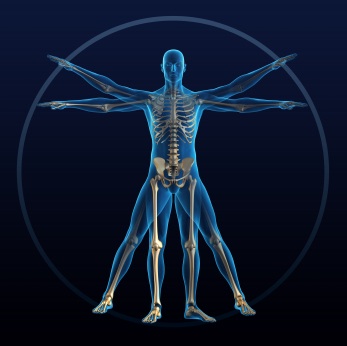A Guide for Physicians
and Other Healthcare Providers
Medical Ethics in Clinical Practice
Basic Principles of Medical Ethics

Probably the most important ethical principles that you need to know in clinical practice are outlined below. They will help guide you through most of your ethical decision-making.
Autonomy - This ethical value refers to the ability of the competent patient to make his/her own decisions about choosing or refusing treatments.
Beneficence - Another major principal of medical ethics refers to the actions taken by a medial professional that are considered to be in the best interests of the patient. This ethical value is sometimes in conflict with the autonomy of the patient. The physician may feel that a certain treatment is necessary for the patient’s well being, but the patient denies the advised treatment. This actually comes up rather frequently in practice. Usually the patient’s autonomy wins out, assuming the patient is mentally competent and understands the pros and cons of the proposed treatment. If mental competency is in question, occasionally a psychiatric and/or neurologic evaluation may be required to determine the patient’s ability to make appropriate medical decisions.
Non-Maleficence (primum non nocere, “first, do no harm”) – This is a long-standing dictum in medical ethics – that it is better to do no harm to the patient than to do them good. This comes into play many times a day in medical practice. You need to know the likelihood of whether a certain medication or other treatment will cause harm compared to the likelihood that it will be beneficial. Physicians are constantly making these kinds of decisions using the so-called risk/benefit ratio, which is often a matter of judgment and experience, but also requires knowledge of the medical literature on the subject. In fact the medical literature can certainly be helpful in these situations and can provide support for the decisions that you make.
For example, the surgical procedure of carotid endarterectomy, which is a way of re-opening cholesterol-clogged arteries to the brain, actually increases risk of stroke in asymptomatic patients who have less than 70% narrowing of one of the carotid arteries when compared to those who don’t get the surgery. However, if the narrowing in the artery is greater than 70%, we know from the literature that the risk of stroke is higher if the patient does not have the operation. Thus clearly this evidence provides a guideline by which we can practice.
Unfortunately, there are many situations in medicine where this type of knowledge has not yet been obtained or the results of studies are not clear. The physician must then discuss the options carefully and clearly to the patient and the family, obtain whatever consultants that may help in the decision-making process and together arrive at a consensus on the best course of action.
Double effect – a corollary to the non-maleficence principle of medical ethics whereby the positive effect of a treatment may also cause harm at the same time. The best example of this is in the field of palliative care in which a patient suffering from pain or shortness of breath due to an incurable terminal disease might be prescribed morphine to help control the suffering, even knowing that death may be hastened by suppressing the respiratory drive as a side effect of the morphine. In this case, alleviating the extreme suffering is felt to be beneficial to the alternative of being miserable during the last hours of an inevitable death.
Other Medical Ethical Guidelines
Informed Consent – This medical ethical guideline basically relates to the autonomy of the patient to choose or decline a medical procedure or a potentially harmful test or treatment. A form presented to the patient or to the family surrogate, if the patient is incapacitated and unable to sign, which, if signed, indicates that permission is given by the patient to go ahead with the procedure and that the patient has full knowledge of the potential risks.
Confidentiality, or patient-physician privilege, is a medical ethical value mandated in this country by the Privacy Rule or better known as HIPAA laws. These are a rather rigid set of rules that does help protect the patient’s privacy, but are sometimes very frustrating to family members because no one will tell them what’s going on with their loved one in the hospital. This often results in poor communication and ultimately anger developing in family members. This puts more onus on the physician to be sure to discuss the patient’s condition with family members, assuming you have the patient’s verbal permission to do so.
Certain laws provide for specific exceptions to the patient-physician privilege, requiring physicians to report sexually transmitted diseases, gunshot wounds, impaired drivers, underage abortions, etc.
Telling the truth to a patient about their diagnosis is sometimes a medical ethical issue in certain cultures. In America, we usually feel it is important for the patient to know what’s wrong with him/her. They usually know anyway that something awful is happening. To have the diagnosis withheld can create greater stress and anxiety than knowing what it is and dealing directly with it.

Conflicts of interest - There are many different conflicts of interest that may occur in medical practice. Sometimes it is difficult to draw the line between what is acceptable and medically ethical and what is not. For example a physician who sees a patient with palpitations in the office may wish to do an EKG in the office for which the doctor receives additional reimbursement. This is generally considered acceptable, even though it may be construed as a conflict of interest. If the doctor refers the patient for an EKG to an outpatient testing facility of which s/he is part owner, this is taboo and tantamount to fraud.
Despite these nuances, the main intent of this medical ethics principal is that a physician should never allow financial interests or other non-medical interests to interfere with or influence medical judgment in the care of patients. I would like to think that physicians are professional enough not to let that happen without having to be regulated by law. However, history would have it otherwise and so we have laws.
The same principal applies to avoiding relationships with pharmaceutical companies that may potentially influence what medication you may give to a patient.
Sexual relationships with patients or family members of patients are considered highly unethical and may result in loss of license or prosecution.
Medical treatment of family members is somewhat controversial and not completely prohibited although generally not felt to be a good idea, particularly for major medical problems or surgery. The prescribing of narcotics to a family member is much more strictly prohibited and will likely lead to some retribution.
Medical Futility (Non-beneficial care) is a term indicating that the patient is so seriously ill that if the heart stops or if respirations cease, providing extraordinary resuscitative measures like cardiopulmonary resuscitation and/or artificial ventilation will not provide any benefit for the patient whose death is imminent anyway with or without the treatment.
This is an extremely difficult medical ethical issue for many families to grapple with. If the family has to make this decision, there may be a certain amount of guilt that will be carried long after the patient has expired. If a patient has an advanced directive that clearly states his/her wishes in this regard, this takes the pressure off the family to decide.
If the patient does not have an advanced directive and if the patient is unable to answer the questions about CPR, and if the family can’t or does not want to decide, the physician can legally make the decision, in some if not most states, that CPR or ventilator treatment would be medically futile and not warranted. Most of the time, however, it would be beneficial if the family were in agreement with the physician’s decision on this. In fact, many physicians just don’t want to make that call without clear family support for two reasons: No matter how difficult it is, families want to be involved in these discussions, and also because of potential medico-legal issues that may occur if the family doesn’t agree with the doctor’s decision.
Reproductive Medicine – This is becoming a greater medical ethical issue every day as we develop better ways to “create” pregnancies in those who would have been incapable of this otherwise. Where does one draw the line on who gets how many children?
Religious Beliefs - Medical ethical issues such as abortion and stem cell research are very emotional concerns that reach to the very core of morality and are closely intertwined with religious beliefs of millions of people around the world. Standards and policies regarding these issues are not easily made and are subject to change because there are so many people who feel strongly about one side or the other. Physicians and pharmacists sometimes get caught in the middle because of their own religious beliefs which may be in opposition to their patients' wishes or to government regulations.
Medical Research – There are clear guidelines followed by the medical research community these days about what is medically ethical research and what is not. There are indeed many medical questions that will never be answered because the research required to find out would be unethical. Thankfully, these guidelines on human experimentation are known worldwide now because of the Declaration of Helsinki developed by the World Medical Association.
Utilization of Resources- This will likely prove to be one of the most important medical ethical issues of the not too distant future as medical costs continue to skyrocket and medical resources become more limited. The specific issues to be decided will include things like whether an 80-year-old person will be able to have insurance cover the costs of chemotherapy for cancer, or hemodialysis for end-stage renal disease, or prolonged ICU care for respiratory failure. Who will decide who gets what?
* * * * *
Medical ethical issues are an important part of clinical practice. You will almost certainly be faced with some difficult ethical dilemmas at some time or another. Your knowledge and experience will help you decide along with close communication with family members and consultants. Ethics Committees and Palliative Care teams are sometimes available to help with such problems as well. In a difficult situation, you should use whatever resources are available to help in the process. Don’t try to “go it alone” unless you have no choice in the matter.
References:
A great practical guide to clinical medical ethics for health professionals - Clinical Ethics: A Practical Approach to Ethical Decisions in Clinical Medicine, Sixth Edition
(sponsored link)
You may wish to also review the AMA's Principles of Medical Ethics for physicians, and the American College of Physicians' Ethics Manual.
For an excellent text on medical ethics, look for Biomedical Ethics (Biomedical Ethics (Mappes))
(sponsored link)
This page was last updated on August 7, 2010.
From "Medical Ethics" back to "HomePage"

Disclaimer | Privacy Policy | Copyright | Sitemap | Contact | Comments









